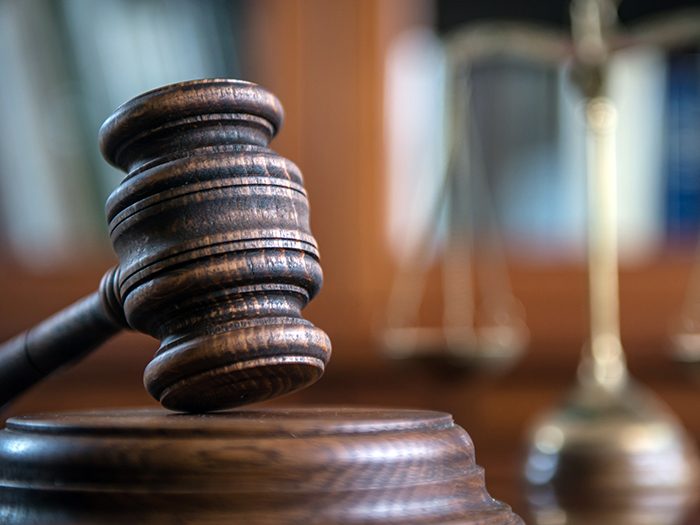Legal Roundup: Bayer in Court Again, Hospital Workers Sue Over Lack of COVID Protection and More

Facebook’s $650M Settlement Over Facial Recognition Passes Key Milestone
The Case: A key feature of Facebook is “tagging” — identifying people in a photo. It allows those people to easily see the image and share it with friends.
To make the process easier, Facebook uses facial recognition to suggest who might appear in a photo — but using that biometric data violates the Illinois’ Biometric Information Privacy Act (BIPA) according to a class action lawsuit.
BIPA mandates that companies get consent from users before obtaining their biometric data.
“Illinois argued that Facebook didn’t get that consent before enabling the new feature by default to its millions of Illinois users, and sued the company in 2015,” according to Vox.
Scorecard: After a judge rejected a $550 million settlement earlier this year, Facebook tacked on another $100 million. The revised $650 million settlement received preliminary approval from a California judge.
Vox reports: “The company will pay Illinois users between $200 and $400 over claims that it violated the state’s facial recognition law.”
Takeaway: The Illinois law set the baseline payout for affected users at $1,000 — so Facebook is settling this case for significantly less.
Social media upstart TikTok “is also facing a similar lawsuit in Illinois that accuses the company of violating BIPA by allegedly collecting facial recognition data, location data and data on close contact from minors, and discreetly sends it to servers in China,” according to Forbes.
Meanwhile, facial recognition technology is getting major pushback from civil rights and privacy activists, leading major tech companies to distance themselves from it.
“Amazon has suspended police use of its controversial facial recognition system, Rekognition, for a year,” according to Forbes. “Similarly, Microsoft has vowed not to sell the technology to police departments in the U.S. until there is a federal law governing its use. IBM had gone a step further and announced that it will stop offering ‘general-purpose facial recognition and analysis software.’ ”
Chipotle Sued for Literally Keeping the Change
The Case: Customers at Chipotle allege that the restaurant is keeping their change — literally.
Amid a national coin shortage, customers say they’ve paid for meals in cash but received no change. Now they’ve filed a lawsuit in Pennsylvania’s Allegheny County Common Pleas Court and are seeking class-action status.
TribLive reports: “On Tuesday, the complaint said, county resident Bridget McMahon went to the Chipotle at 4960 William Flynn Highway in Hampton. Her bill was $15.51, and she paid with a $20 bill. In change, the complaint said, McMahon received just $4, even though her receipt said she received $4.49.”
An attorney for the plaintiffs said that “the practice is occurring at many of the stores in the Pittsburgh area.”
Chipotle did not immediately respond to the suit, according to the newspaper.
Scorecard: The lawsuit has just recently been filed and has not yet come to a resolution.
Takeaway: A national coin shortage is no excuse for not having a robust plan in place to accept proper payments.
Bayer to Pay $1.6B to Settle Suit Over Contraceptive
The Case: Bayer was sued over its Essure contraceptive device, “which some women said failed to prevent pregnancies and caused excessive bleeding and pelvic pain,” according to the Washington Post.
Scorecard: Bayer agreed to pay $1.6 billion to settle the lawsuit, resolving about 90% of the 39,000 lawsuits over the contraceptive device.
Takeaway: It’s just the latest legal trouble for Bayer, and its stock shares have taken a tumble as a result.
The Washington Post reports: “The Leverkusen, Germany-based company announced a $12.1 billion plan in June to settle lawsuits over some products it inherited with the $63 billion takeover of Monsanto. But Bayer has not resolved tens of thousands of cancer claims linked to its Roundup weedkiller or reached a deal for handling future claims over the herbicide.”
Largest U.S. Hospital Chain Accused of Failing to Protect Workers From COVID
The Case: A group of workers at the HCA Healthcare Riverside Community Hospital in Southern California have sued the hospital for allegedly failing to adhere to COVID-19 safety protocols.
The suit claims that the hospital “failed to provide workers with adequate protective equipment, such as masks and gowns, and pressured staff to ignore safety precautions to meet quotas. It says the hospital also failed to alert staff to possible Covid-19 exposures and pressured staff who had symptoms to return to work,” according to CNBC.
A spokesperson for the hospital disputes the claims saying: “No one takes the health and safety of our workers more seriously than we do, and since day one, our top priority has been to protect them — to keep them safe and keep them employed — so they can best care for our patients. Any suggestion otherwise ignores the extensive work, planning and training we have done to ensure the delivery of high-quality care during this pandemic.”
Scorecard: The lawsuit has just recently been filed and has not yet come to a resolution.
Takeaway: Employers had very little time to prepare for COVID-19 and institute protocols. If it appears that they failed to adhere to government mandated safety protocols, expect lawsuits. &










